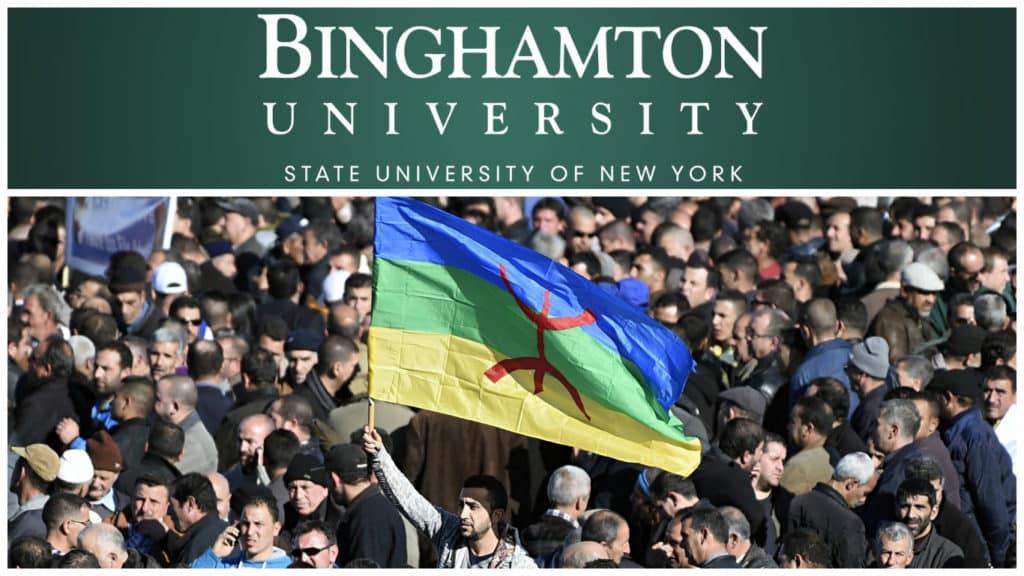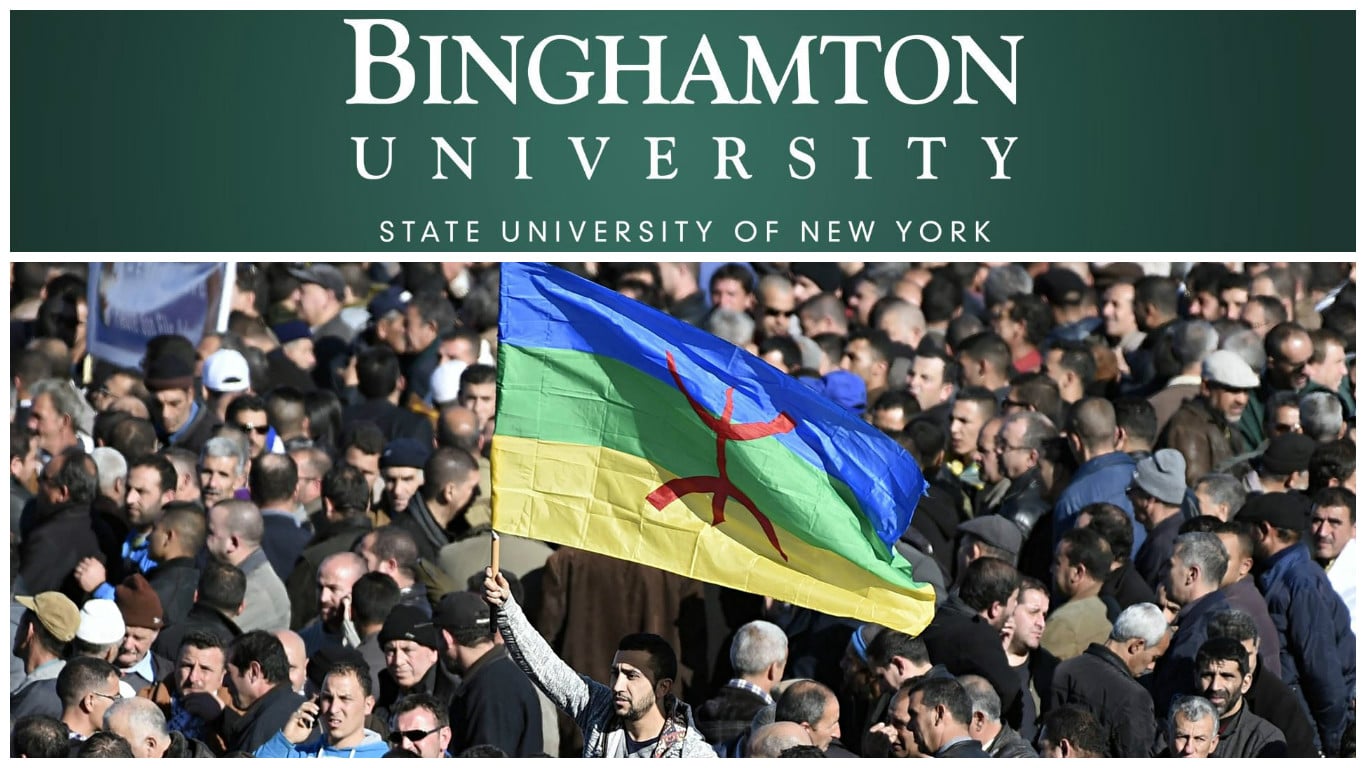
Amazigh students will hold a special session on the Amazigh Spring during the upcoming Graduate Student Conference on World Historical Social Science taking place at the State University of New York at Binghamton, April 15th-17th, 2016. The panel is titled “Amazigh Spring: Reclaiming the North African Uprisings.”
Amazigh Spring: Reclaiming the North African uprisings
Since 2011, the events and aftermath of uprisings across North Africa have been continually labeled, and misrepresented, as an “Arab Spring,” in a linguistic move that erases the Indigenous Amazigh people of the region. This panel examines the present dynamics and historical roots of four key themes to North African social movements: religion, gender, political autonomy, and environmental exploitation. To begin, Inas Mahbouba explores intersections of gender and ethnicity in the Tamazight women’s movement in post-revolutionary Libya, considering the interaction of these identities in two case studies. Akli Sh’kka analyzes the means of cultural destruction occurring by the current influx of Islamic extremism as well as the social movements that serve to protect the Tuareg cultural heritage in the midst of widespread violence. Continuing in the uprisings of the Sahara, Akli Mouhamadine looks at the consequences of environmental exploitation of the Air region of “North Niger,” as performed by France and with the complicity of the Nigerien state. Eden Almasude looks at Indigenous knowledge and political thought underlying modern autonomy movements for Amazigh regions across North Africa.
Presentatons/panelists include:
- Decolonizing Feminism, Constructing Intersectionality: Tamazight Women’s Movement
Inas N Mahbuba, Minnesota State University, Mankato - “The threat of Islamic extremism to the ways and traditions of the Tuareg people”
Akli Sh’kka, Imouhagh International Youth Organization - “We are victims of Areva, France, and the State of Niger”
Akli/Ibrahim Mouhamadine, Portland Community College - “Our Strength Rises From Our Roots: Linking modern autonomy movements to traditional governance in North Africa”
Eden Almasude, University of Minnesota Medical School

